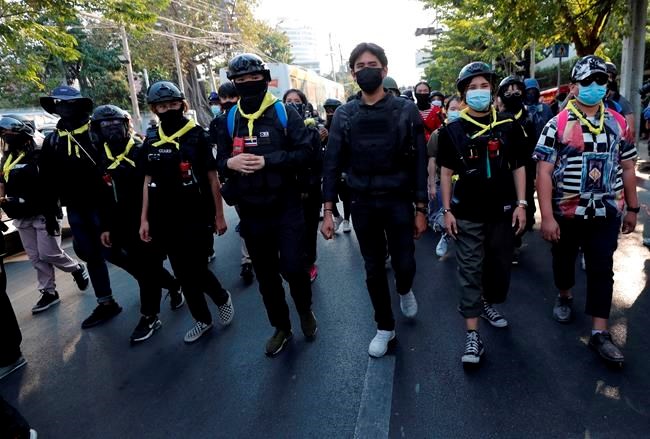BANGKOK — Thailand’s prime minister survived a no-confidence vote in parliament on Saturday amid allegations that his government mismanaged the economy, bungled the provision of COVID-19 vaccines, abused human rights and fostered corruption. Nine other ministers also survived the vote.
It marked the second no-confidence test that Prime Minister Prayuth Chan-ocha's government has faced since taking office in July 2019, following a contested election after Prayuth seized power in a 2014 coup as the army chief. In February last year, he and five Cabinet ministers easily defeated a no-confidence vote in the lower house.
In the latest motion, Prayuth's government was also criticized for misusing its power to promote police officials and for establishing a cyber unit to attack government critics on social media, among other complaints.
But a more serious allegation was that Prayuth has deepened divisions in society by using the monarchy as a shield against criticism of his government.
A student-led protest movement has campaigned since last year for Prayuth and his government to step down. They want the constitution to be amended to make it more democratic, and for the monarchy to be reformed to make it more accountable.
“The biggest fault of Prayuth is that he does not understand the principles of the
“He used the monarchy to protect himself whenever he was criticized or opposed. This is an evil action, making him no longer qualified to be prime minister,” he said.
His accusation refers to the enforcement of Article 112 of the criminal code, also known as the lese majeste law. Prayuth said in June last year that King Maha Vajiralongkorn had expressed his wish for the government not to use the law against defaming the monarchy to prosecute pro-democracy protesters.
Thanathorn Juangroongruangkit, a popular politician who was forced out of parliament last year, was charged last month with lese majeste for alleging that the government’s procurement of COVID-19 vaccines was late and inadequate, and that there was possible
The criticism relates to the monarchy because most of the vaccines that Thailand has ordered are to be produced by Siam Bioscience, a private Thai company owned by the king.
The monarchy is widely considered an untouchable bedrock of Thai nationalism.
The lese majeste law allows anyone to file a complaint with the police, with convictions carrying jail terms of up to 15 years per
Four well-known protesters — including human rights lawyer Arnon Nampa, student leader Parit Chiwarak, and political activists Somyos Prueksakasemsuk and Patiwat Saraiyaem — were prosecuted under the law and on sedition charges earlier this month. Their lawyer requested bail, but the court denied it.
Prayuth said the debate in parliament was "a good opportunity for both sides to do something together for our country and people. And I am ready to clarify every allegation.”
Of the 487 lawmakers, 277 are part of the ruling coalition and 210 are with the opposition. The censure motion would have required a simple majority, or 244 votes, to pass. Prayuth received 272 votes, with 206 voting no-confidence and three remaining silent.
On Saturday evening, around 1,000 protesters staged a rally outside the gate of the parliament building, where speakers took turns denouncing the vote results, saying they were hosting their own version of the censure debate. Some attendees held signs criticizing the government and the monarchy.
“We knew what the result of the vote would be, but we are not upset because at least the opposition parties had a chance to expose the government's wrongdoings so that the whole country would know the truth,” said Jaruwan Bungasaree, a 68-year-old protester.
“They spoke out against the corruption and did a good job,” she added.
Police said earlier that they would deploy more than 10,000 officers in Bangkok over the weekend to control the crowds and maintain law and order. Police vehicles, including water cannon trucks, were dispatched near the parliament building.
___
Associated Press writer Bill Bredesen contributed to this report.
Chalida Ekvithayavechnukul, The Associated Press



